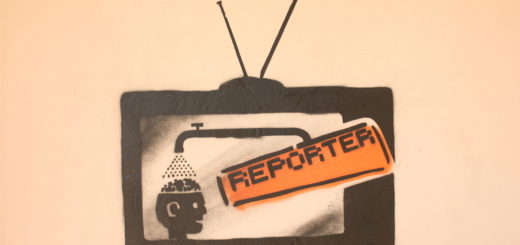Coming of age in a time of youth
 It’s one thing to be aware that you won’t live forever. It’s quite another to be made aware of your own mortality amid the youth-inspired bedlam of South by Southwest. It’s taken me a while to recover from that revelation.
It’s one thing to be aware that you won’t live forever. It’s quite another to be made aware of your own mortality amid the youth-inspired bedlam of South by Southwest. It’s taken me a while to recover from that revelation.
I’ve never thought of myself as “older,” but I’ve been feeling less young after turning … err, never mind. But since then I’ve been prescribed reading glasses and have been in the hospital for the first time since I was 5.
Just before SXSW, I had emergency surgery on my midsection. Hating to miss a party — especially with seven SXSW houseguests from Latvia — I didn’t let stitches keep me home.
Turns out that going to SXSW following surgery might be the first thing that’s really made me hear whispers of my demise. Following the unexpected death of Alex Chilton, it was hard not thinking about mortality. Chilton was known for singing “The Letter” for the Box Tops in the 1960s. He’d been scheduled to play SXSW with his band Big Star.
There were times during SXSW when it was clear that someone with more common sense would’ve stayed home. It was hard on my dignity to repeatedly ask my 20-something friends to walk very slowly. How slow was I?
A guy using crutches passed me.
Since I couldn’t dart from club to club, I had to plan my SXSW by how much stamina I had left. That’s partly why I wound up at the Encore Patio on Red River for a show by Camper Van Beethoven. While they’d been a favorite band in college, their show being close to where I parked got me in the door.
Actually, my husband pointing out where CVB was playing also helped get me to the show. My hospital visit had interfered with picking up those new reading glasses, so I had difficulty reading the tiny print in SXSW’s “pocket guide.”
I found it fitting — in my recently repaired state — that I was seeing a band I love playing in the smallest, worst venue I’d ever seen them in. Nearly every band playing SXSW is filled with dreams about big breaks and upcoming stardom. CVB has already had the kind of indie-pop run that many unknown bands come to SXSW dreaming about.
CVB put on a strong show under difficult conditions (borrowed drums and a faulty electric grounding) that likely would have led a younger band to storm offstage. I viewed their show as proof that being older — and vastly experienced — isn’t the end of the Earth.
A further reminder of mortality was the closing-night screening of “American: The Bill Hicks Story,” the biopic of the Houston-born comic who died young of cancer in 1994. His family, friends and fans were at that Paramount showing, talking about how they still miss him.
There were parts of SXSW where it was difficult not feeling sorry for myself for hosting “South By Stitchwest.”
Yet I know I’m remarkably lucky. Reading glasses, emergency surgery and choosing to go to a music festival with internal stitches are luxury problems.
It’s hard realizing that the only alternative to getting older … is not getting older. The worst part: someone pointing out you’re getting older.
Late one night during SXSW, I was in pain from having been up and around for far too long. I repeatedly asked one Latvian houseguest to walk very slowly because I couldn’t keep up with his long legs.
“I’m young. I’m at a music festival. I want to see everything,” was his petulant response, and it might be the most accidentally wounding thing anyone has said to me. Anytime you define yourself as young, you’re automatically classifying the other person as … not young.
The next morning I loudly told both my guest and his hangover how much he’d hurt my feelings. I wasn’t intending to yell at him, I was just so frustrated with his reaction to my unexpected physical challenges.
Since SXSW, my bandages have come off and I’m starting to resume my presurgery life. I’m very worried that SXSW might have aged me.
Since the festival ended, I’ve been trying to catch up on my favorite TV show, “Gossip Girl,” an evening soap opera centered on the lives of characters just out of high school. Sadly, recent viewings of the show have left me unfulfilled.
Maybe it’s harder now to care about the problems of fictional uber-wealthy college freshmen when my concerns have changed.






















